Have you ever felt stuck in a situation, not sure of what you need to do next? What if the path forward wasn’t finding the right answer but asking the right question? As Albert Einstein famously said, “Great questions produce great results.” This idea is at the heart of Change Your Questions, Change Your Life by Marilee Adams, a book that completely shifted my thought process.
Honestly, I wasn’t always a book lover in my life. I always find reading a chore. But as I mature, I start to realize the importance of reading. It opens up your mind and broadens your horizons. So, I make it a point to start reading and read 20 pages a day. I chanced upon this book after reading about other people’s recommendations, and I began to read 20 pages a day for this book. Little did I know this book would be so engaging that I finished it in just two days! It’s not often that a book captivates a book hater like me! But Marilee Adams’ insights felt like they were written just for me.
We make decisions throughout our lives. I am sure you may have regretted some of these decisions. I have my fair share of bad decisions I regretted years ago that have impacted the me of today. The insight from this book is so impactful that I started to embrace a new horizon when it comes to decision-making.
Let me share some of the concepts I have learned, and how you can apply these ideas to transform your own mindset and life.
About the Author: Marilee Adams
Before diving into the book’s content, let’s get to know the author. Marilee Adams is an executive coach, consultant, and thought leader in the field of questioning and mindset. She’s worked with organizations, leaders, and individuals to foster a culture of curiosity and growth. Her expertise lies in helping people shift from reactive, judgmental thinking to proactive, solution-focused questioning.
Change Your Questions, Change Your Life is one of her most successful works. It’s a bestseller translated into multiple languages and is widely used in corporate training, education, and personal development programs worldwide. I was reading her 4th edition! The book’s practical tools and relatable stories make it accessible to anyone.
Why Questions Matter More Than Answers

I have always thought that we constantly seek answers for life. In theory, it’s not wrong to feel this way, and many people, I believe, also have the same thought process as mine. This book’s core idea is simple yet profound: the quality of our questions determines the quality of our lives. Instead of always focusing on finding the “right” answers, Marilee Adams encourages us to ask better or the right questions. This shift in perspective encourages more creativity, better decisions, and healthier relationships. Yes! It helps in relationships!
This idea felt like a game-changer. I realized that I was spending so much time and energy looking for the “perfect” answer that I was missing out on the learning and growth that comes from asking the right questions. For example, instead of asking, “Why is this happening to me?” (which often leads to frustration and self-pity), I started asking, “What can I learn from this situation?” This slight shift can lead to a calmer and more constructive mindset. When you start to dive deeper into this practice, it just completely alters your perspective.
The Learner Mindset vs. Judger Mindset
One of the most impactful concepts in the book is the explanation between the Learner Mindset and the Judger Mindset. Here’s a quick breakdown:
- Learner Mindset: Open, curious, and focused on growth. In this mindset, you’re more likely to ask questions like, “What’s possible here?” or “How can I improve?”
- Judger Mindset: Critical, defensive, and focused on blame or failure. In this mindset, you might ask questions like, “Whose fault is this?” or “Why am I so bad at this?”
The most interesting thing is to learn about the amygdala. We often default to a Judger Mindset due to our brain’s biology. This is the work of the amygdala! Our amygdala, in our brain, plays a key role in processing emotions, especially fear and stress. When we encounter a situation that reminds us of past negative experiences, the amygdala can trigger a fight-or-flight response, pushing us into a Judger mindset.
For instance, if you’ve ever felt criticized at work, your amygdala might react strongly the next time you receive feedback, even if it’s constructive. It just builds up your biasness! This can lead to defensiveness or self-criticism, putting you squarely in the Judger mindset.
The good news is that we can train ourselves to recognize these triggers and shift to a Learner mindset. A simple action of changing our questions can help us make this shift: “What can I learn from this?” It’s a reminder that every situation, no matter how challenging, offers an opportunity for growth. I am pretty sure some may term this a “positive mindset.” But this is a shift towards a Learner Mindset!
The ABCD Method: A Step-by-Step Tool for Change Your Questions
What is interesting is that the book introduces the ABCD Method, a simple framework for shifting from a Judger to a Learner mindset. Here’s how it works:
- Awareness: Recognize when you’re in a Judger mindset.
- Breathe: Pause to create space for change.
- Curiosity: Shift to a Learner mindset by asking empowering questions.
- Decide: Choose how to move forward.
I am emotional and sensitive as a person. This helps a great deal! For example, let’s say you feel overwhelmed with a work project. Instead of getting more frustration, you can try the ABCD method:
- Awareness: You will realize this: “This is too much. I can’t do this.”
- Breathe: Take deep breaths to calm yourself.
- Curiosity: And asked, “What’s one small step can you take right now?”
- Decide: Focus on that one step, and once you complete the step and feel “win”, you will feel the project is more manageable as progress is made.
This method of changing your questions is excellent for interrupting negative thought patterns and approaching challenges with a more evident, more constructive mindset.
Q-Storming: Brainstorming Questions for Solutions

One of the key concepts from the book, which kind of enlightens me, is Q-Storming, which is essentially brainstorming questions instead of answers. The idea is that you can unlock new perspectives and solutions by asking the right questions.
For example, I tried Q-Storming when planning a new direction for thebizhero.com, a business blog site my company runs. Instead of asking, “What should I do?” I asked questions like:
- “What value can I offer to my readers?”
- “What if I focus on this topic?”
- “How can I validate the assumptions?”
I kept asking questions, which eventually led to ideas I hadn’t considered before and helped me to conceptualize the site’s focus and direction. As mentioned in the book, one of the interesting things about Q-Storming is that any missed questions are a potential for crisis!
Key Aspects of Q-Storming
- Question Generation: The primary goal is to create as many new questions as possible rather than seeking immediate answers or solutions.
- First-Person Perspective: Questions should be framed using “I” or “we,” encouraging personal reflection and collective responsibility.
- Open-Ended Questions: The focus is on open-ended questions that start with “How can I?” or “How can we?” rather than closed questions.
- Learner Mindset: Participants are encouraged to adopt a learner mindset and avoid judgmental thinking.
Process of Q-Storming
- Goal Setting: The group agrees on the highest goal or objective.
- Assumption Listing: Participants identify and list all assumptions related to the goal.
- Fact Gathering: The group compiles a list of known facts relevant to the situation.
- Question Generation: Each participant generates as many new questions as possible, starting with “I” or “we”.
- Review and Refinement: The group reviews the questions, looking for those that could lead to breakthrough thinking
Why Embracing Change Your Questions Can Change Your Life
Adopting a questioning mindset can transform every aspect of your life. It can help you:
- Make better decisions by exploring all angles of a problem.
- Improve relationships by fostering curiosity and empathy.
- Enhance personal growth by focusing on learning rather than judgment.
This approach aligns Enjoylah.com philosophy, whether you’re navigating a career change, improving your mental well-being, or simply looking for ways to enjoy life more. Changing your questions or asking the right questions can help you find clarity, purpose, and joy in everyday moments.
Final Thoughts on Change Your Questions
I felt this book was a game-changer to read. It not only helped me finish a book in record time but also gave me insights into how I can drive more creative ideas and make better decisions. I’m excited to continue practicing these techniques and sharing my journey with all of you.
If you’re looking for a book that can help you transform your mindset and improve your life, I highly recommend this one. It’s a quick read, but the insights are profound and actionable.
As you go about your day, I’ll leave you with one question: “What’s one question you can ask today that could change your life?”
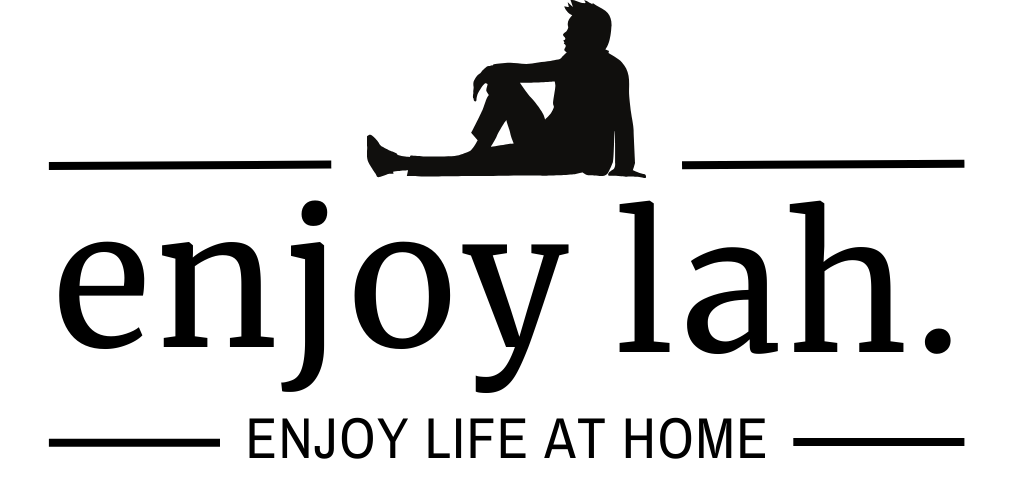
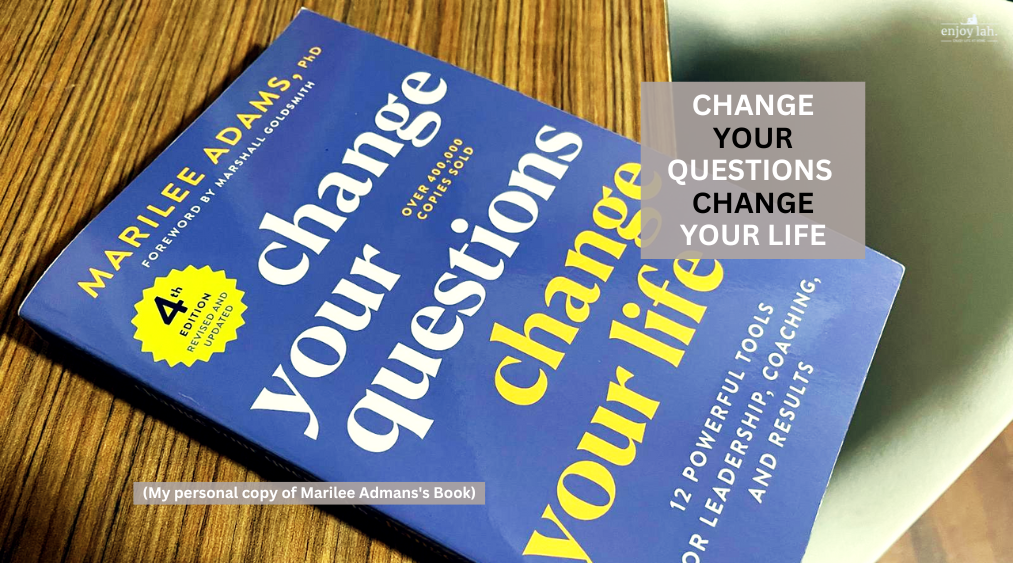


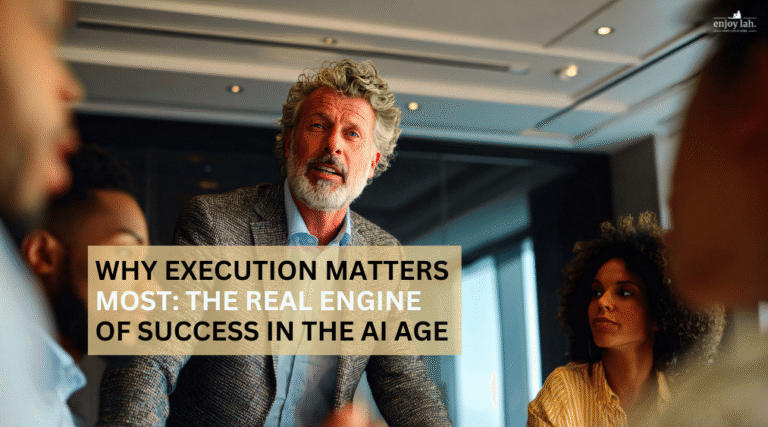
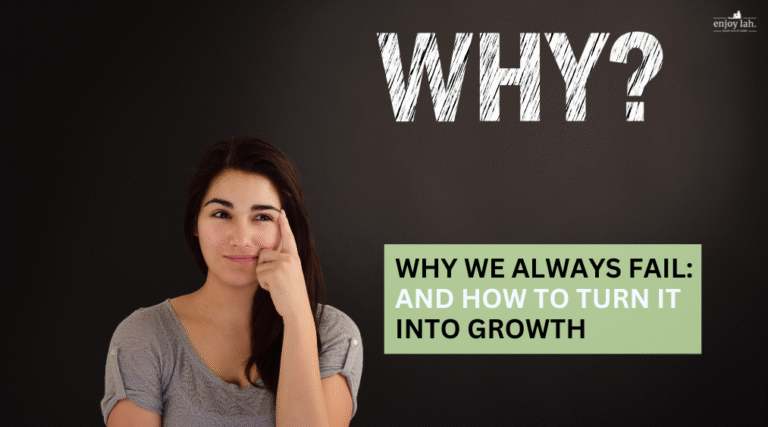

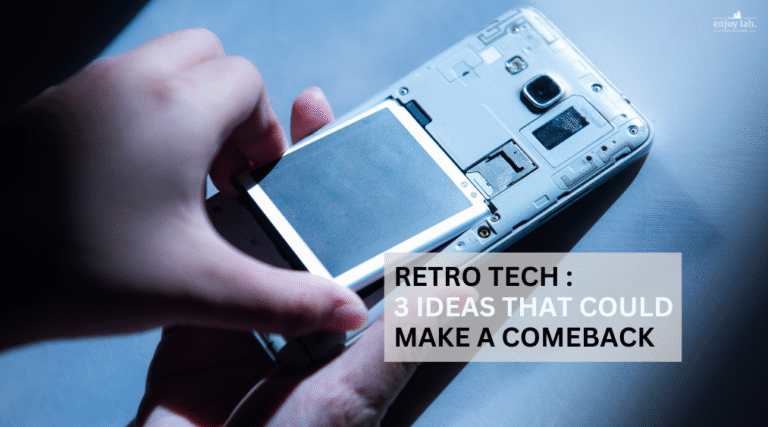

One Response